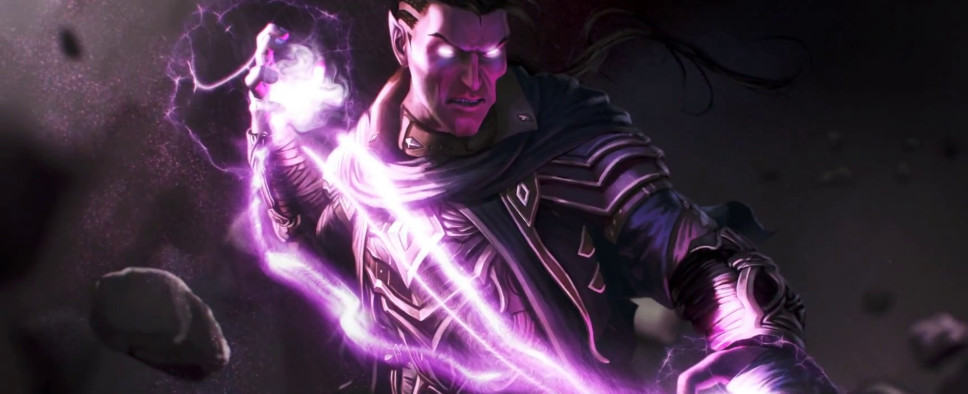In The Cards
-
Category: News ArchiveHits: 2649

Richard Cobbett has penned yet another RPG Scrollbars column for Rock, Paper, Shotgun, and this time he focuses his attention on card game spin-offs and minigames. With the explosion of Hearthstone in the last few years and the success of minigames like Gwent, this subject has been a long time coming, though I only realized that with the benefit of hindsight:
While my inexperience with the genre probably contributes to Hearthstone's style working better for me than other games, its tricks have been the key to most other successful attempts too. Gwent (which I finally got around to playing after reviewing The Witcher 3) is a solid game, sure, but a big chunk of its practical appeal is the way that it's baked into the gameworld. Playing it isn't simply firing up a minigame, like the dice poker of the previous game, but feeling part of a wider hobby with a social element. The same goes for one of the best digital CCGs Card Hunter which attempted to simulate the feel of sitting around a table playing D&D with friends, complete with a ton of narration and jokes and a DM whose attention is constantly split between the game, players, and pining after the pizza girl. I don't much like the feel of the game itself, but that wrapping kept me with it far longer than if it had been a straight-RPG using the same mechanics on an Actually Epic Quest.
Going back further, the pattern continues. Final Fantasy VIII's Triple Triad took about the simplest card game this side of Snap and made it something that could be a big feature when added to Final Fantasy XIV some sixteen years later. The enthusiasm and importance of this silly thing in-game made it more than it was, even without getting into the gameplay side of it unlocking gear. I was never taken with Might and Magic's Arcomage in this regard, but enough people were that it got its own standalone spin-off way back in 2000.
All that said, having the world obsessed with a game and talking about it all the bloody time doesn't automatically make it fun. Consider this the '˜Fuck Blitzball' corollary, if you will. Likewise, New Vegas did a poor job of establishing Caravan as a game worth anyone's time within the quest, Knights of the Old Republic's attempt to sell Pazaak as something that anyone would actually play for fun was at best adorable, and let's not even get started on The Witcher's original take on the CCG style.
Of all the games to merge with RPGs though, CCGs are arguably the best fit. They've got the cast and systems to base cards and rules on, and a world that allows any player to take it as seriously as they like. There isn't the sense that you're buying into something that's going to cost the Earth, as with something like Magic: The Gathering, or even Hearthstone. Hunting new cards is the perfect background quest, since players who don't care can completely ignore it, while those who do get something directly useful with each and every new acquisition. It opens up great potential for setting up key characters as duelists, reinforcing the satisfaction of beating them at what they've almost certainly just claimed they're the best at. It's a handy distraction for when the main combat loop gets a little wearisome. And it's the kind of strategic, tactical experience that goes well with an RPG mindset, certainly compared to giving the cast of The Witcher 3 a love of pachinko because it's easy to code.

